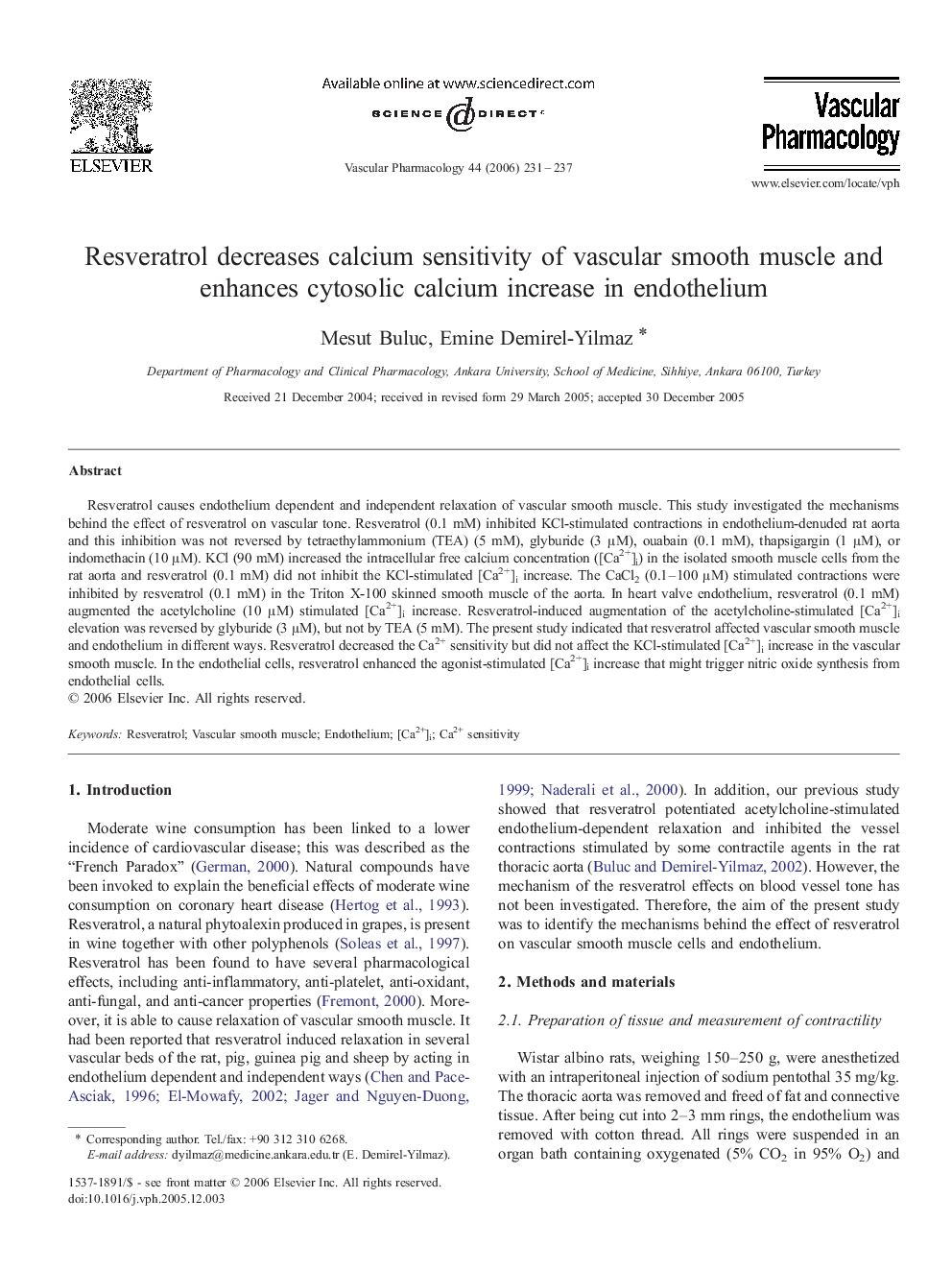| Article ID | Journal | Published Year | Pages | File Type |
|---|---|---|---|---|
| 2574831 | Vascular Pharmacology | 2006 | 7 Pages |
Resveratrol causes endothelium dependent and independent relaxation of vascular smooth muscle. This study investigated the mechanisms behind the effect of resveratrol on vascular tone. Resveratrol (0.1 mM) inhibited KCl-stimulated contractions in endothelium-denuded rat aorta and this inhibition was not reversed by tetraethylammonium (TEA) (5 mM), glyburide (3 μM), ouabain (0.1 mM), thapsigargin (1 μM), or indomethacin (10 μM). KCl (90 mM) increased the intracellular free calcium concentration ([Ca2+]i) in the isolated smooth muscle cells from the rat aorta and resveratrol (0.1 mM) did not inhibit the KCl-stimulated [Ca2+]i increase. The CaCl2 (0.1–100 μM) stimulated contractions were inhibited by resveratrol (0.1 mM) in the Triton X-100 skinned smooth muscle of the aorta. In heart valve endothelium, resveratrol (0.1 mM) augmented the acetylcholine (10 μM) stimulated [Ca2+]i increase. Resveratrol-induced augmentation of the acetylcholine-stimulated [Ca2+]i elevation was reversed by glyburide (3 μM), but not by TEA (5 mM). The present study indicated that resveratrol affected vascular smooth muscle and endothelium in different ways. Resveratrol decreased the Ca2+ sensitivity but did not affect the KCl-stimulated [Ca2+]i increase in the vascular smooth muscle. In the endothelial cells, resveratrol enhanced the agonist-stimulated [Ca2+]i increase that might trigger nitric oxide synthesis from endothelial cells.
